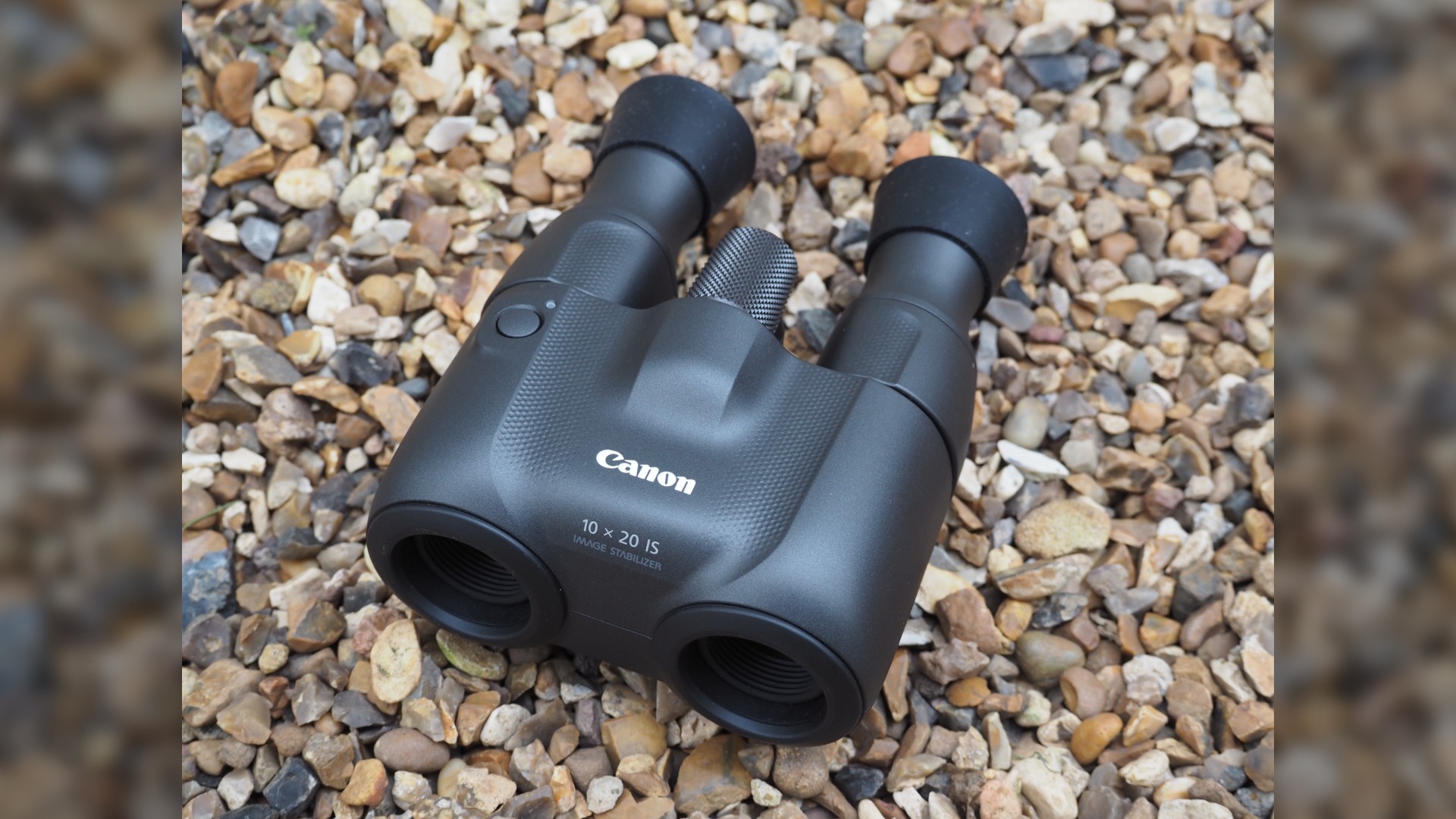Live Science Verdict
The Canon 10x20 IS binoculars stand out from the crowd by virtue of the battery powered, gyro sensor incorporating image stabilization feature that transforms a slightly wobbly image at full magnification to a buttery smooth one, thus reducing eye strain for the user. Whether that’s worth paying a premium for will depend on how often you’re planning to use them, as the compact build and lack of any means of attaching to a tripod necessitates hand held use.
Pros
- +
Body integral image stabilization
- +
Anti shake feature
- +
Compact and lightweight
- +
Good build quality
Cons
- -
Limited eyepiece adjustment
- -
Only a 20mm objective lens
- -
Expensive
- -
Not water resistant
Why you can trust Live Science
These Canon 10x20 IS offer image stabilization in a compact and travel-friendly form, but are the sacrifices worth it?
Magnification: 10x
Objective lens diameter: 20mm
Field of view at 1000m: 93 meters
Closest focusing distance: 2 meters
Eye relief: 13.5mm
Weight: 0.95 lbs / 430g without battery
Dimensions: 4.7x5.6x2.7 inches / 118x142x69mm
When it comes to finding the best binoculars within your budget, it's all about finding the ideal combination of a powerful magnification and a large and bright objective lens. But a high magnification can sometimes make it difficult to achieve a wobble-free image. This is especially important if you're trying to make out tale-tell markings on a particular species of bird for instance – especially when used without the aid of a tripod.
These futuristic porro prism type Canon 10x20 IS binoculars helpfully come with a hidden weapon; a built-in lithium battery powered image stabilization, denoted by those ‘IS’ letters, to help achieve a judder free observation when used hand held to view a subject. Such a feature is still a rarity on a small pair of binos – at least, outside of the Canon brand – and helps to reduce eyestrain when using them over longer periods of time, even if its inclusion does push up the price here.
Ultimately, whether you should buy the Canon 10x20 IS binoculars comes down to whether you're going to get enough out of that image stabilization feature to justify they extra cost you're paying for it.
Canon 10x20 IS: Features
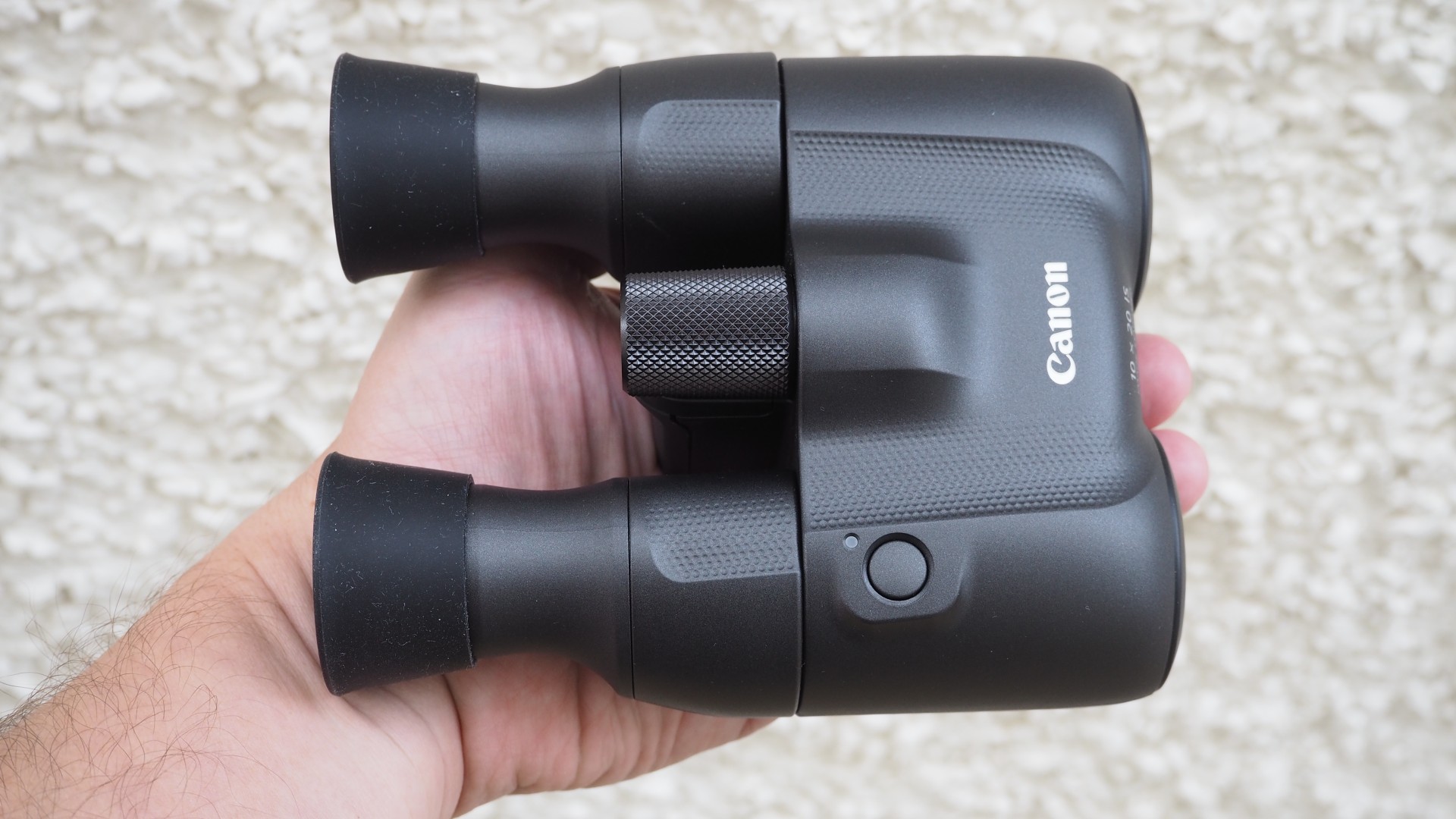
We took the binoculars down to a local wildfowl sanctuary to try out. While a 10x magnification is decent in terms of viewing power from afar, the 20mm objective lens it’s married to here is small by the standards of rivals. Canon is sacrificing view quality for portability in this case. The rough rule of thumb is that a bigger lens provides a brighter view, which would suggest a lesser performance for this Canon at dusk and in a lower light. If you're looking for binos that suit lower light conditions, check out our Canon 10x32 IS or Canon 10x42L IS reviews.
Alongside portability, the main reason anyone will be choosing the Canon 10x20 IS binoculars is the inclusion of the on-board image stabilisation; this takes the form of a gyro sensor that makes vertical and horizontal adjustments for any vibration – aka hand wobble – it detects.
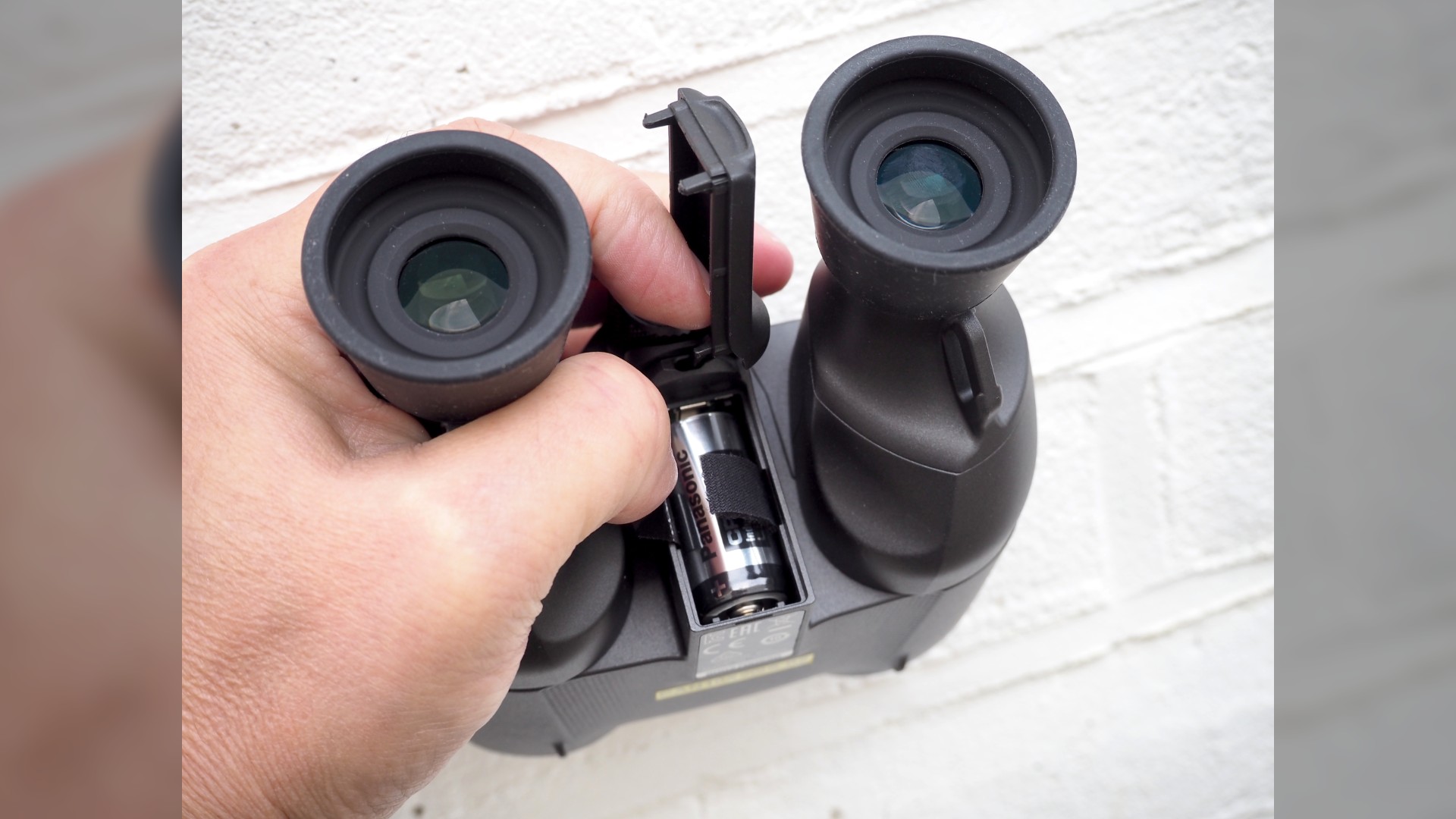
The binoculars take a single CR123A lithium battery to power the image stabilizer. Less easy to readily find when out in the field than a pair of AAs or AAAs perhaps, but it keeps things the right side of manageable and is long lasting in providing up to a generous 12 hours of use. Also the weight here is less than those models deploying AAs; at 430g, which Canon claims makes it the lightest of its type, so you’re not going to be dealing with aching arms. Both a neck strap and carry case are provided for additional comfort and protection.
Get the world’s most fascinating discoveries delivered straight to your inbox.
Canon 10x20 IS: Design
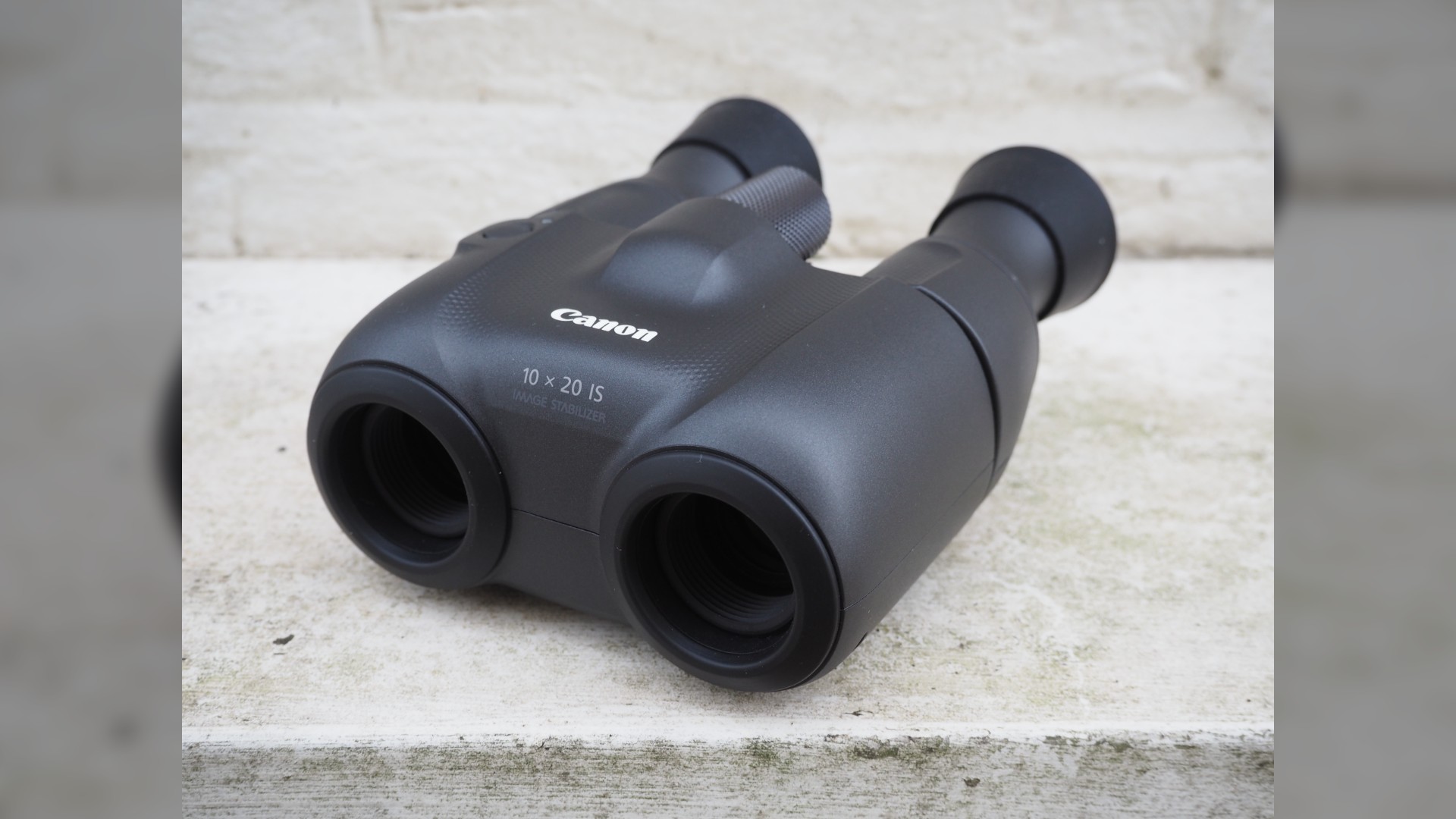
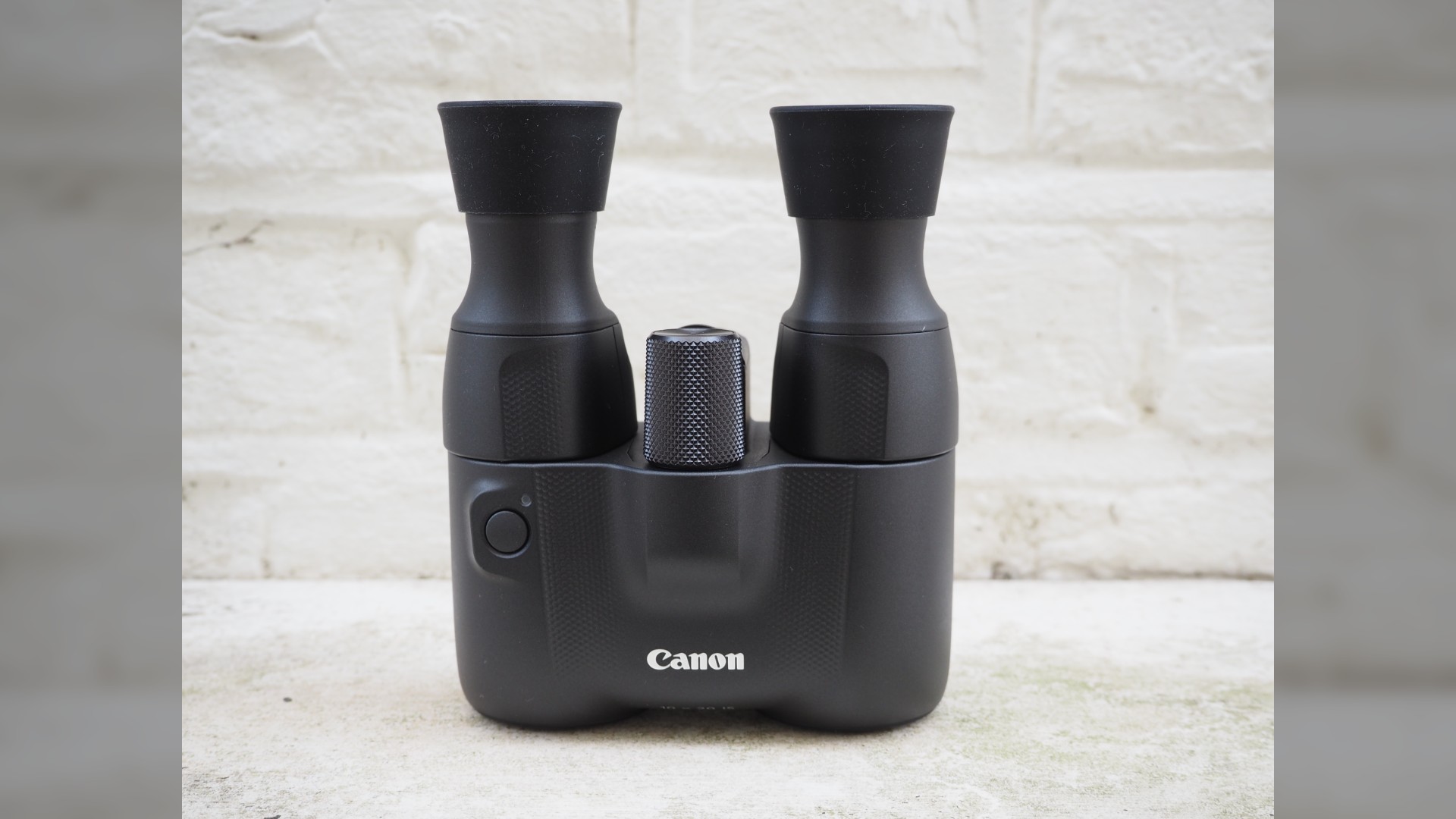
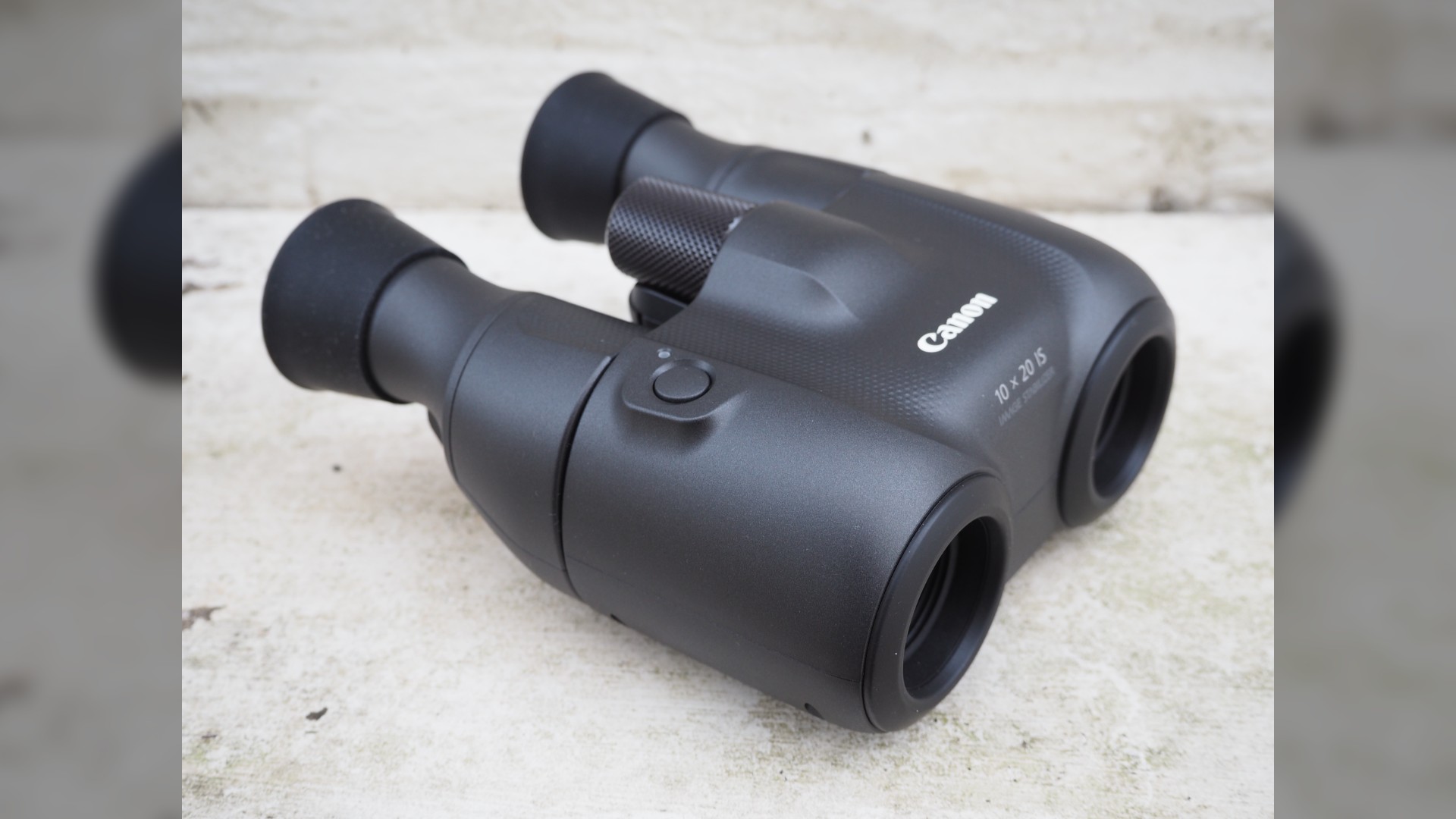
Despite the odd, bulbous shape, the Canon 10x20 IS are compact and lightweight enough to comfortably fit in a jacket pocket. They’re not waterproof though, so you may need to bring an umbrella along with you.
While there is a marginally ridged texture to the very top of these Canon 10x20 IS binoculars, overall the surface is smooth. We’d have preferred a more textured surface to allow for a more secure grip, or even a rubber coating that could have doubled up as extra protection from bumps and drops.
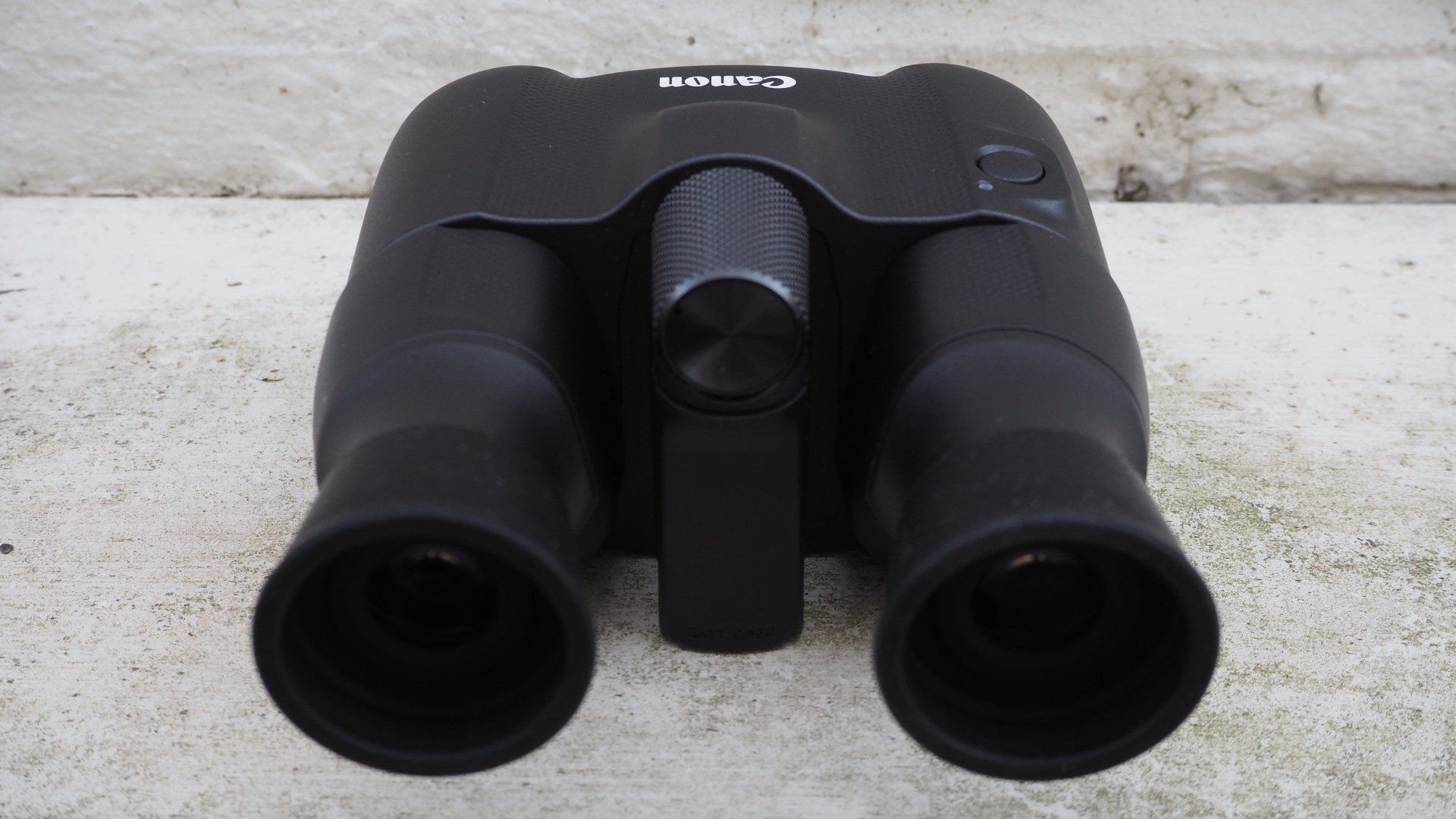
We were impressed by the pronounced manual focus wheel, situated equidistant between the eyepieces. This has an attractively tactile surface making it easy to find and use, even with our eyes square up against the eyepieces.
Plastic slip-on caps are provided out of the box to protect the elongated eyepieces, but they don’t have a mechanism to attach them to a strap when not in use, so they’re quite easy to lose.
Canon 10x20 IS: Performance
The big talking point here is the built in image stabilizer. So the question is, does it actually make a noticeable difference? Happily, the answer is yes. When viewing wildfowl a couple of hundred meters away with the ‘IS’ inactive, we were able to achieve an adequately steady observation hand held, albeit one with some noticeable wobble.
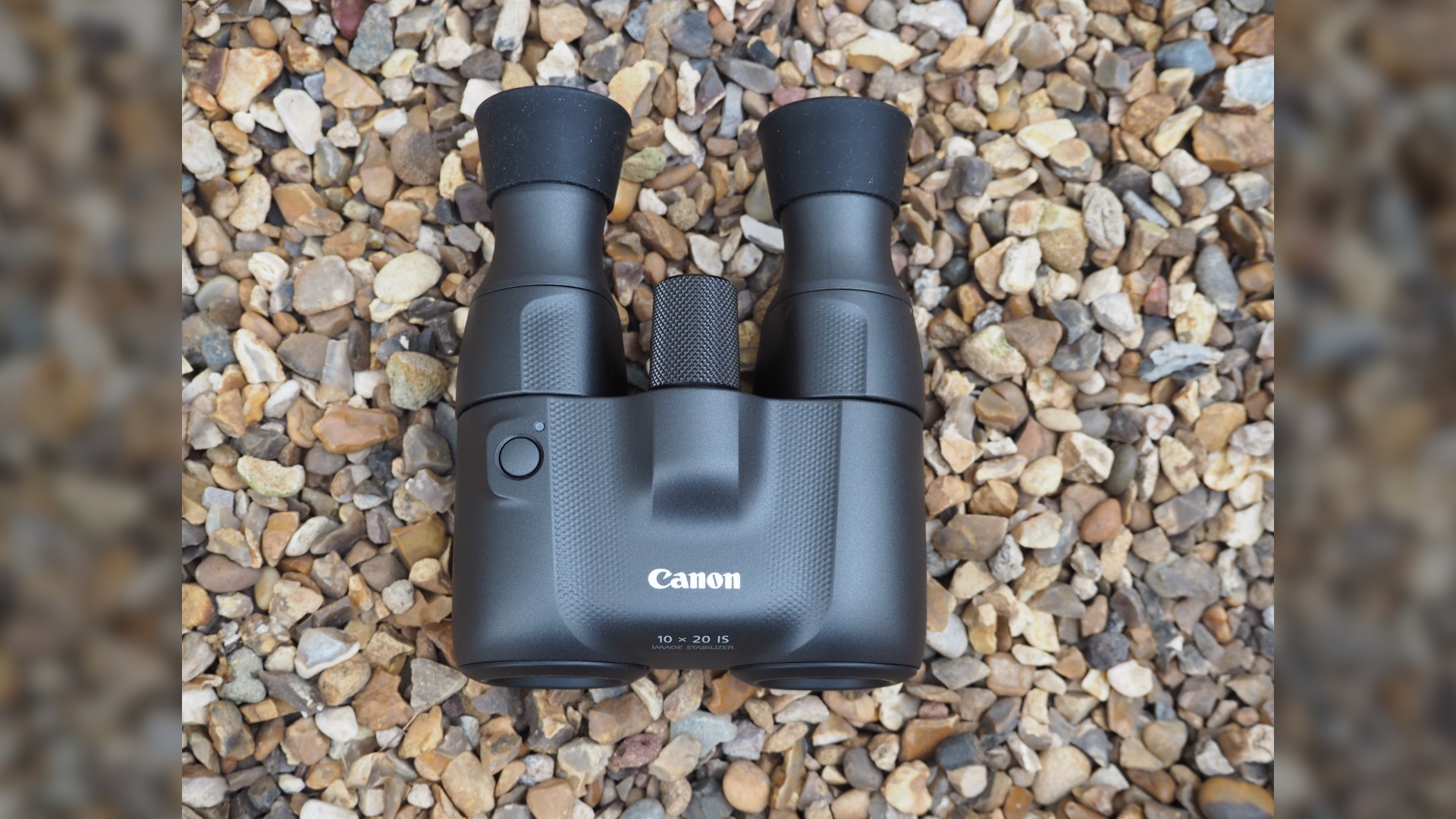
However, when we hit the IS button on the top of the binoculars, the image instantly steadied out. Our subjects suddenly appeared to glide when we panned the binoculars left and right, rather than juddering as if an earthquake. The ‘IS’ operates for up to five minutes from the first squeeze of the button with a green LED lighting up when it’s active so you don’t forget and drain the battery.
The Canon 10x20 IS provides a closest viewing distance of two metres, though arguably this won’t be relevant to most people who are buying these in order to view wildlife or sports. However there is a degree of caution necessary for anyone looking to use these in the great outdoors, as unlike Canon’s larger models like the 10x42L IS WP binoculars, the 10x20 IS are not weather resistant or waterproof so they’re not suitable for use in rough weather conditions.
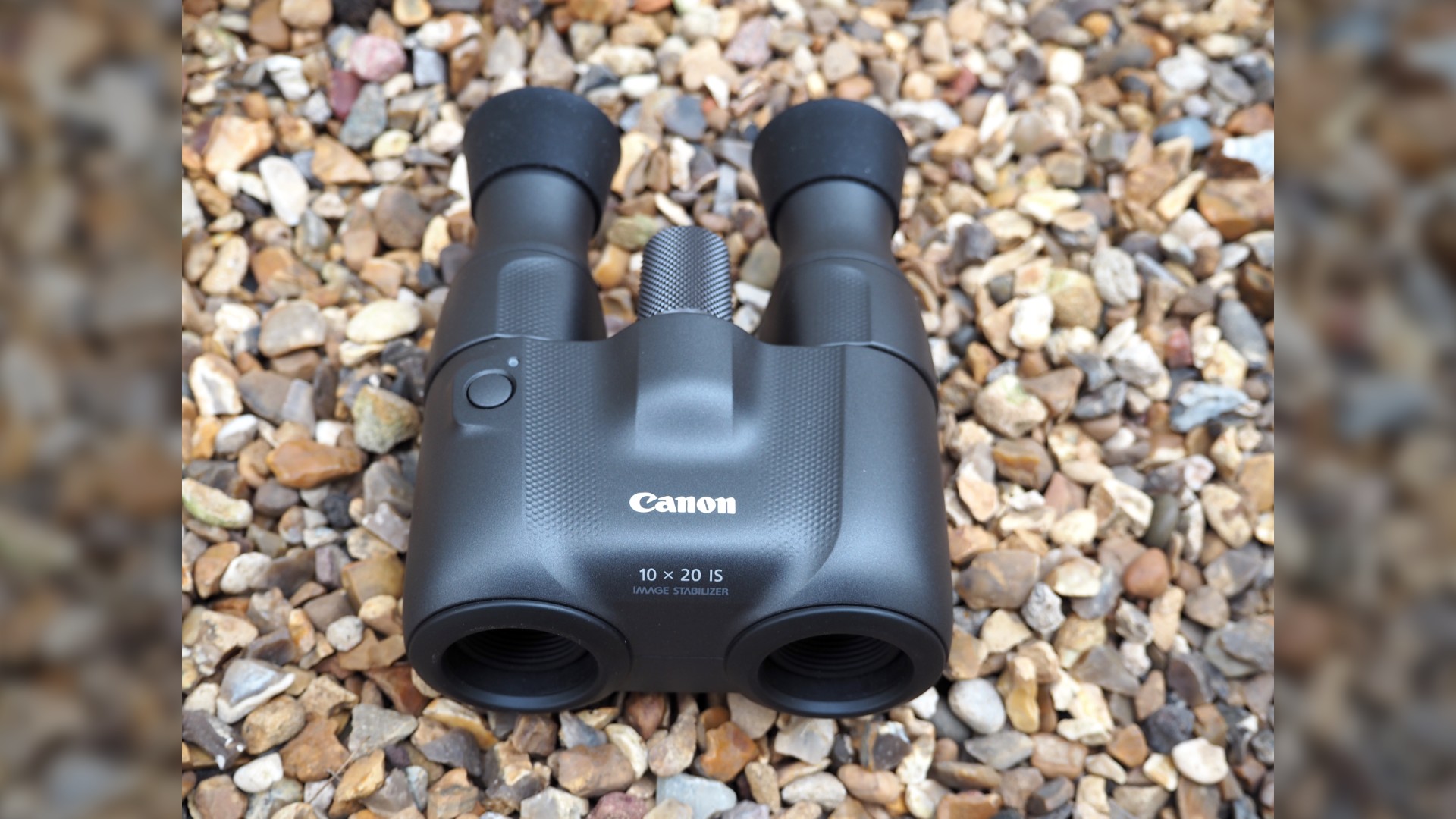
If we’re being picky, the 10x42L IS WP from Canon also looks like a better bet for if you're looking for the best binoculars for stargazing, simply thanks to that much larger objective lens – namely a whopping 42mm rather than a titchy 20mm, as here.
We tried the 10x20 IS outdoors in failing light and the view through them, while not a total write off by any means, was noticeably dim. However, for anyone wanting a compact pair of image-stabilized binoculars for mostly daytime use, these Canon 10x20 IS binos are the best option out there.
Should you buy the Canon 10x20 IS binoculars?
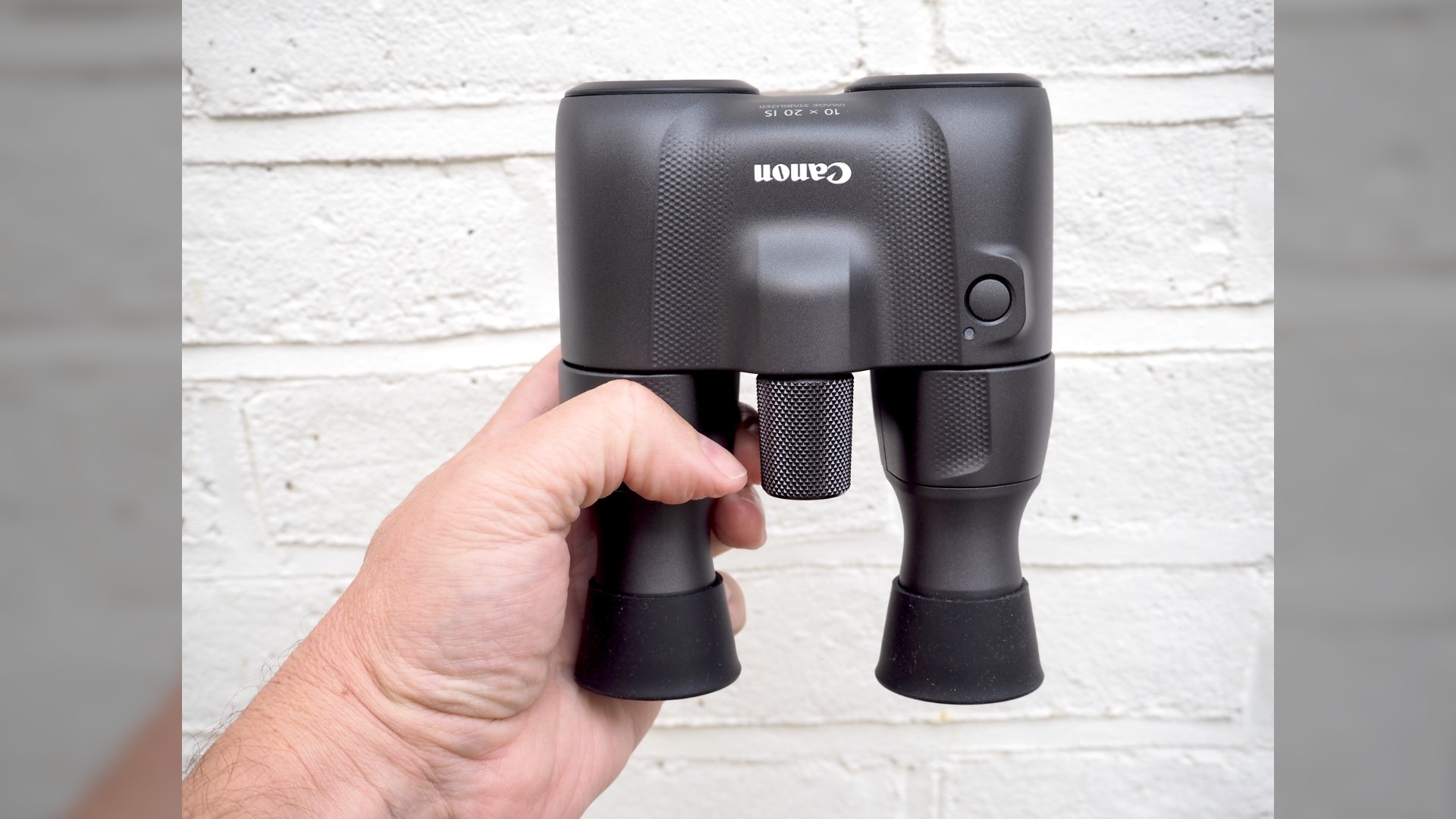
If you're looking for a rock steady image and don't want to carry a hefty set of binos around with you, then the Canon's 10x20 IS binoculars are a fantastic choice that offer great image quality, good ergonomics, and reliable build quality.
It’s slightly disappointing however that for the price this model isn’t waterproof, or even water resistant though, so they're not really suitable for rough weather which is always a possibility when you're out in nature. The smaller objective lens also limits their uses somewhat - they're great in the daytime, but they're not made for low-light conditions.
If you're looking for a pair of binoculars to take with you on hikes, or for a spot of bird watching, you can't go wrong with the Canon's 10x20 IS.
If this product isn’t for you
While there are plenty of alternatives from other manufacturers that offer a 10x magnification, there are very few manufacturers, except from Canon, that offer built-in anti shake with it. If you like the look of these but need a larger objective lens then you should check out the Canon 10x42L IS WP.
If you don’t need the image stabilization/ anti shake feature, then a pair of binoculars with a bigger objective lens can be had for less than what Canon is asking here. Here there are many choices, such as the fairly priced Olympus 8x42 Pro or 10x42 Pro.
Finally, if you're looking for a compact pair of binos but you don't want to pay for the image stabilization, then we'd recommend a pair like the Olympus 8x25 WP II.
Gavin has over 30 year experience of writing about photography and television. He is currently the editor of British Photographic Industry News, and previously served as editor of Which Digital Camera and deputy editor of Total Digital Photography.
He has also written for a wide range of publications including T3, BBC Focus, Empire, NME, Radio Times, MacWorld, Computer Active, What Digital Camera and Rough Guide books.
He also writes on a number of specialist subjects including binoculars and monoculars, spotting scopes, microscopes, trail cameras, action cameras, body cameras, filters, cameras straps and more.





